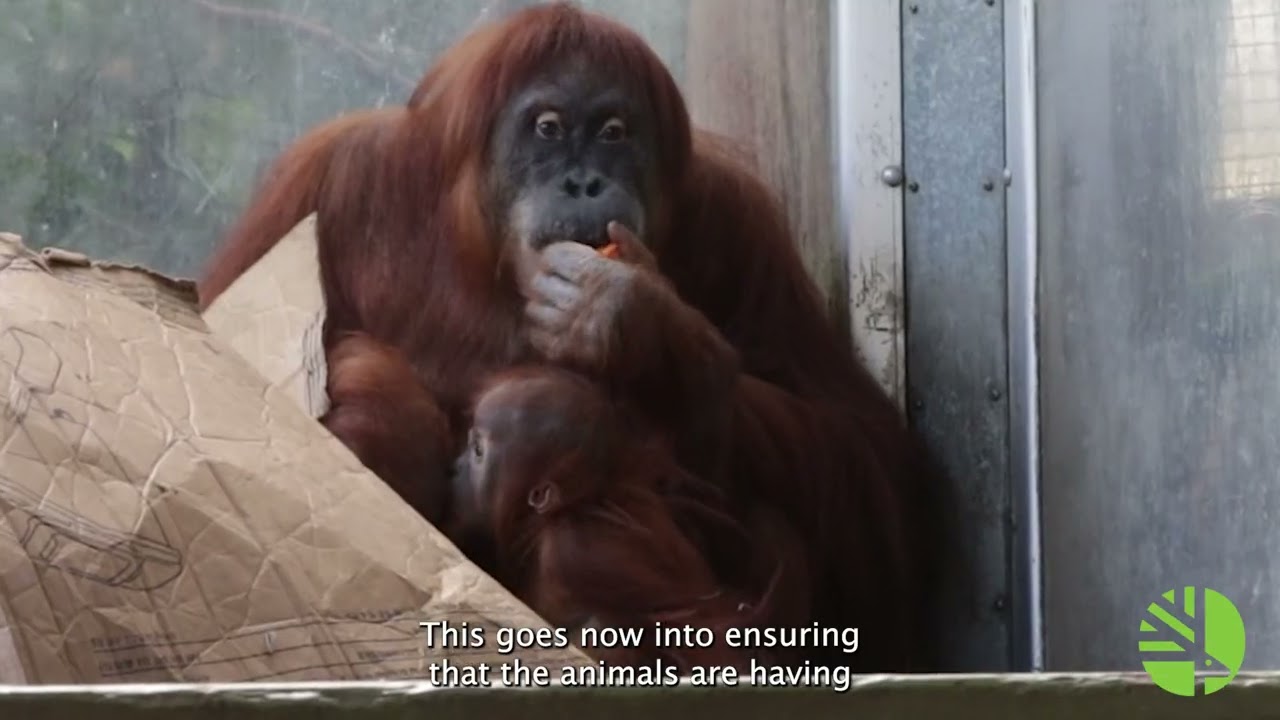Summary:
– Introduction to Ezekiel and his research on the welfare of Sumatran Orangutans at the Toronto Zoo
– Highlighting the challenges faced by orangutans in the wild due to habitat destruction, poaching, and the wildlife pet trade
– Exploring the dynamics of human-animal interaction and the importance of understanding its effects on orangutan welfare
– Discussing the positive relationship observed between the orangutans, visitors, and Wildlife Care staff at the Toronto Zoo
– Previewing the upcoming research on the orangutans’ adjustment to a new outdoor habitat
Meet Ezekiel, a dedicated welfare research assistant at the Toronto Zoo and an incoming Ph.D. student in psychology at York University. Ezekiel recently conducted a fascinating study on the welfare of Sumatran Orangutans at the zoo, focusing on the effects of visitor presence on their well-being. Orangutans, as one of our closest living relatives, have a complex relationship with humans, and understanding this interaction is crucial for their care.
In the wild, orangutans face numerous challenges that threaten their very existence. Habitat destruction, primarily driven by the expansion of oil palm plantations, has led to the loss of their natural homes. This disrupts their way of life and exposes them to increased human contact, often resulting in conflict and harm. Additionally, poaching and the wildlife pet trade further contribute to the decline of orangutan populations in the wild. These factors paint a bleak picture of these magnificent creatures.
However, in the controlled environment of the Toronto Zoo, the orangutans’ welfare is given the utmost priority. Visitors are encouraged to observe and interact with the orangutans from a respectful distance, allowing the primates to approach freely if they choose to do so. This unique dynamic between the orangutans and visitors allows one to study the psychological impact of human presence on their well-being.
Ezekiel’s research involved conducting behavioral observations to assess the orangutans’ response to visitors after the pandemic-related closure. Interestingly, no significant changes were observed in their displacement behaviors or avoidance of guest areas. This suggests that the orangutans have a neutral relationship with the visitors, indicating comfort and adaptation to their presence. Seeing the positive interactions between these majestic creatures and our community is incredibly heartening.
One crucial aspect of the orangutans’ care at the Toronto Zoo is the relationship between the animals and the dedicated Wildlife Care staff. Approach behaviors, which indicate a positive relationship, were frequently observed during interactions. This highlights the mutual trust and understanding between the care staff and the orangutans, further enhancing their well-being. The Toronto Zoo is indeed an environment built on respect and care.
As Ezekiel’s research continues, the focus will shift to another significant change in the orangutans’ lives – a new outdoor habitat. This exciting development will allow the orangutans to exhibit a full range of species-typical behaviors, providing valuable insights into their natural behavior patterns. The Gunung Leuser Habitat at the Toronto Zoo promises to be an awe-inspiring experience for visitors as they witness these incredible creatures in their element.
In conclusion, the welfare research conducted by Ezekiel at the Toronto Zoo sheds light on the unique and fascinating aspects of caring for Sumatran Orangutans. Despite the challenges orangutans face in the wild, the Toronto Zoo provides a haven where these animals can thrive. The positive relationship observed between the orangutans, visitors, and Wildlife Care staff is a testament to the environment of respect and care that has been created. Make sure to visit the Toronto Zoo and swing by the Gunung Leuser Habitat to witness the incredible orangutans in action – it’s an experience that will leave you in awe!
*****
Source Description
Meet Ezekiel, a welfare research assistant at your Toronto Zoo and an incoming Ph.D. student in psychology at York University 🦧
For his master’s thesis, Ezekiel witnessed through behavioral observations how the Sumatran orangutans at the Toronto Zoo adjusted to our guests’ return after the pandemic and studied the effects of visitor presence on their welfare. Despite being one of the closest living relatives to our species, life for orangutans in the wild and their interaction with humans is rife with suffering. Habitat destruction for oil palm plantations, poaching, and the wildlife pet trade have all played a role in why the orangutans’ numbers in the wild are dwindling. The dynamics of human-animal interaction in human care differ from those in the wild. Visitors watch and interact with a respectful distance while the orangutans choose to approach freely. For the orangutans whose home is the Toronto Zoo, it is crucial to understand how our presence affects their psychological well-being to ensure they thrive in our care.
Fortunately, he did not see changes in their performance of displacement behaviors or avoidance of guest areas associated with the return of the visitors. The evidence suggests that the orangutans have a neutral relationship with the guests, and their interaction with the Wildlife Care staff involved a lot of approach behaviors. This suggests a positive relationship between the care staff and the orangutans. This paints a picture of the environment our community has created with and around the Toronto Zoo orangutans – an environment of respect and care.
Meanwhile, this behavioral research will continue to follow the orangutans as they adjust to another big change in their lives – a brand-new outdoor habitat. We are excited to see how the orangutans show their range of species-typical behaviors. Remember to swing by the Gunung Leuser Habitat to see the orangutans at your Toronto Zoo soon! 🦧

